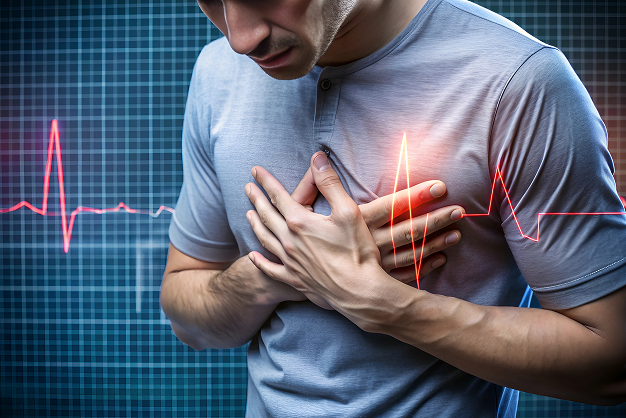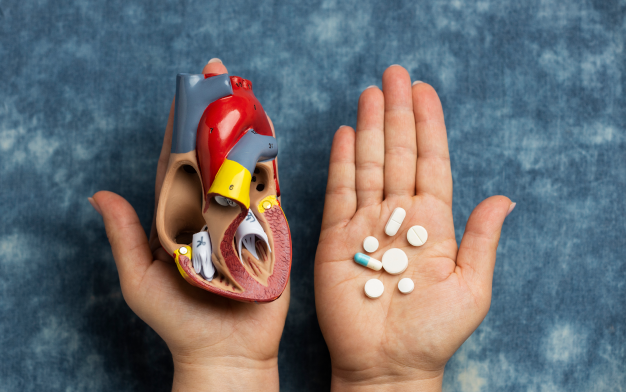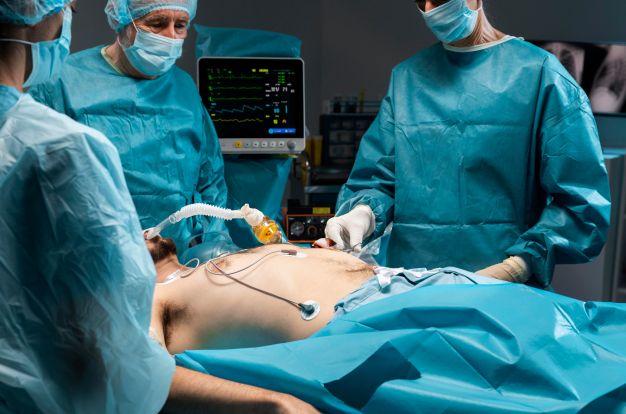Author: Dr. P. R. Bhima Shankar, Senior Consultant & Cardiac Electrophysiologist
Have you ever felt a sudden fluttering or pounding sensation in your chest? Or noticed your heartbeat race during moments of anxiety or excitement? For most people, these are harmless occurrences. However, sometimes, such changes in your heartbeat could be a sign of something more serious — a condition known as heart rhythm disorder or arrhythmia.
What Is a Heart Rhythm Disorder?
A normal heart beats in a steady rhythm, but with arrhythmia, the heartbeat may become:
- Too fast (Tachycardia)
- Too slow (Bradycardia)
- Irregular (Skipped or extra beats)
While some arrhythmias are harmless, others can interfere with the heart’s ability to pump blood efficiently, posing a serious threat to life.
What Causes Arrhythmia?
Heart rhythm disturbances can develop due to several underlying causes, including:
- Heart disease or a previous heart attack
- Structural abnormalities in the heart
- .Genetic conditions
- Thyroid disorders
- Certain medications or stimulants (like caffeine or some cold medications)
- Imbalances in electrolytes such as potassium and magnesium
Sometimes, arrhythmias may occur even in healthy individuals without an identifiable cause.
Common Types of Heart Rhythm Disorders
- Atrial Fibrillation (AFib): The most common type, where the upper chambers of the heart quiver instead of beating properly.
- Supraventricular Tachycardia (SVT): A sudden onset of rapid heartbeat originating in the upper chambers.
- Ventricular Tachycardia (VT): A dangerously fast rhythm from the lower chambers that may be life-threatening.
- Bradycardia: Unusually slow heart rate.
- Premature Beats: Extra or skipped heartbeats that may feel like the heart “missed” a beat—often benign.
Warning Signs You Shouldn’t Ignore
Not all arrhythmias cause noticeable symptoms, but when they do, you might experience:
- Fluttering or pounding in the chest
- Skipped or irregular heartbeats
- Dizziness or lightheadedness
- Shortness of breath
- Fatigue
- Fainting or near-fainting episodes
If you notice any of these symptoms, it’s important to seek immediate evaluation at a Critical Care Hospital in Kottayam with expert cardiology facilities.
How Are Arrhythmias Diagnosed?
Doctors use several advanced tests to diagnose heart rhythm disorders accurately, including:
- Electrocardiogram (ECG): A recording of your heart’s electrical activity.
- Holter Monitor: A portable ECG device worn for 24–48 hours to track heart rhythms continuously.
- Event Recorder: Used for intermittent symptoms.
- Echocardiogram: An ultrasound to examine the heart’s structure and function.
- Blood Tests: To check thyroid levels and electrolyte balance.
Caritas Hospital, recognized as one of the Best Cardiac Hospitals in Kottayam, provides state-of-the-art cardiac diagnostics and monitoring systems for accurate arrhythmia detection.
Treatment Options
Treatment depends on the type and severity of arrhythmia. It may include:
- Medications: To control heart rate or rhythm.
- Pacemaker: For slow heart rhythms (bradycardia).
- Electrical Cardioversion: A controlled shock to restore normal rhythm.
- Catheter Ablation: A minimally invasive procedure that destroys small areas of heart tissue causing abnormal signals.
- Implantable Defibrillator (ICD): For dangerous, life-threatening arrhythmias.
At Caritas Hospital, our expert team led by the Best Cardiologist in Kottayam ensures individualized and effective treatment for each patient.
What Is Catheter Ablation (CA)?
Catheter Ablation is a modern, highly successful treatment for many types of arrhythmia. Using advanced technology, doctors identify and eliminate the specific area of abnormal heart tissue causing the irregular rhythm.
The procedure involves guiding a thin catheter through a vein or artery to the heart. At its tip, an electrode delivers radiofrequency (RF) energy, creating a small scar that blocks faulty signals. It’s a safe, long-lasting solution with a high success rate and minimal complications. Not every irregular heartbeat is dangerous—but it should never be ignored. Persistent palpitations, dizziness, or fainting require immediate evaluation by a cardiologist. Modern treatments can restore normal heart rhythm, allowing patients to return to healthy, active lives.
Your heartbeat is the rhythm of your life — keep it steady.
.pdf%20300X60%20PX-02-02.svg)



